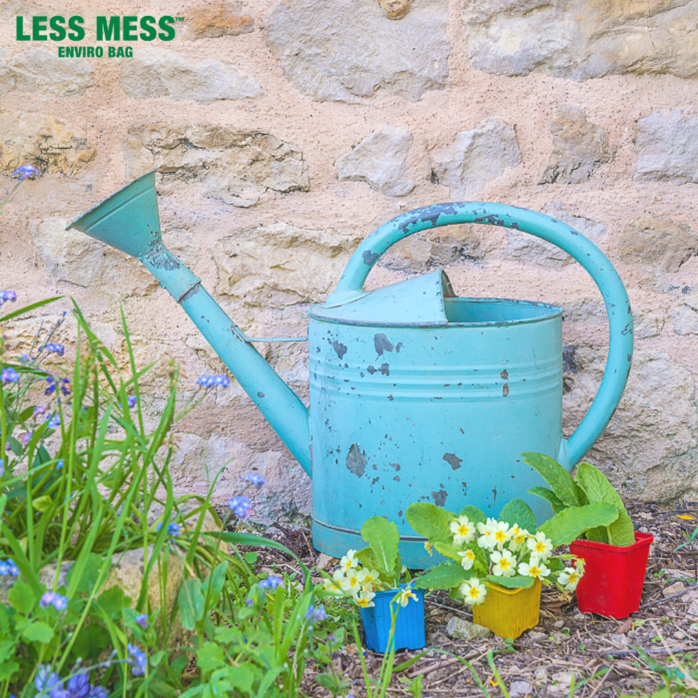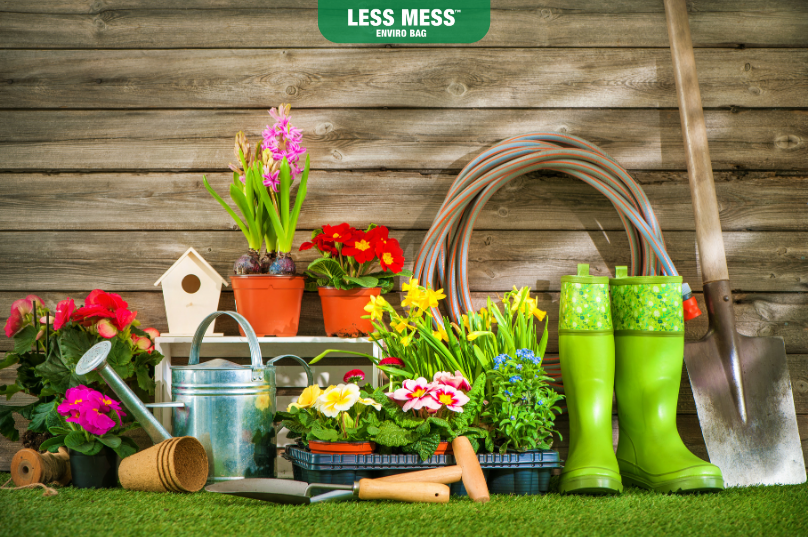A Guide to Maintaining your Garden.
Gardening can be a rewarding hobby that not only beautifies your outdoor space but can also provide you with fresh produce and a source of relaxation. However, maintaining a garden requires time, effort, and knowledge. Here is a guide to help you maintain your garden and keep it healthy and thriving, presented by Less Mess.

- Watering: Watering your plants is one of the most important aspects of gardening. Different plants require different amounts of water, so it's important to understand the water requirements of each plant in your garden. Plants need to be watered deeply and infrequently. Watering deeply allows the water to penetrate the soil and reach the roots of the plant. Frequent shallow watering can lead to waterlogged soil and shallow roots. Watering early in the morning or late in the evening when the sun is not too strong can help reduce water loss due to evaporation.
- Fertilizing: Plants require nutrients to grow, and these nutrients can be found in fertilizer. Fertilizer comes in different forms, including granular, liquid, and organic. Organic fertilizers, such as compost or manure, are preferred as they improve soil health and promote beneficial microorganisms. When applying fertilizer, it's important to follow the instructions on the package and not over-fertilize as this can lead to burned plants or even death.
- Weeding: Weeds can quickly take over a garden and steal nutrients and water from your plants. Regular weeding can help keep your garden healthy and free of weeds. Hand-pulling weeds is the most effective way to remove them, and it's important to remove the entire root system to prevent regrowth. Mulching around plants can also help suppress weed growth.
- Pruning: Pruning is important to promote healthy growth and remove dead or diseased branches. Pruning also helps shape the plant and encourage more blooms. Different plants require different pruning techniques, so it's important to research the proper pruning methods for each plant in your garden.
- Pests and Diseases: Pests and diseases can quickly destroy a garden if left unchecked. Regularly inspecting your plants for pests and diseases can help catch any problems early. If you do find pests or diseases, it's important to act immediately to prevent the spread. There are many organic options for pest and disease control, such as neem oil or insecticidal soap.
- Soil Health: Healthy soil is key to a healthy garden. Testing your soil can help you understand its pH level and nutrient content. Amending your soil with compost, manure, or other organic matter can help improve soil health and promote beneficial microorganisms.
Less Mess while Gardening
In conclusion, maintaining a garden requires regular attention and care. Understanding the needs of your plants, such as water requirements, fertilization, pruning, and pest control, can help keep your garden healthy and thriving. With proper care, your garden can be a beautiful and productive space for years to come. Less Mess helps you complete your garden with high quality garden products. We have everything from soil to stones for you to choose for your garden. Order your Less Mess bag today!




